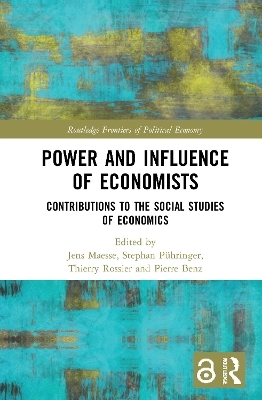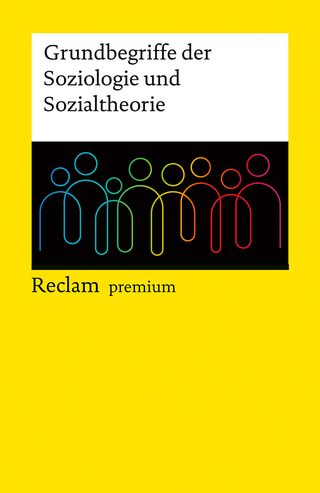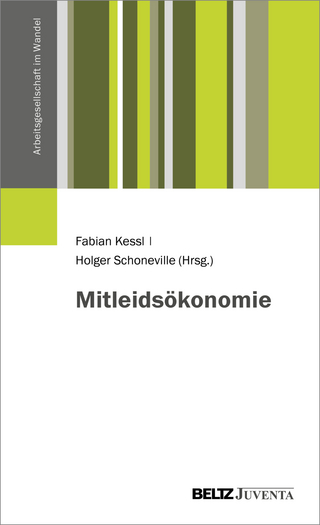
Power and Influence of Economists
Routledge (Verlag)
978-0-367-41984-4 (ISBN)
Economists occupy leading positions in many different sectors including central and private banks, multinational corporations, the state and the media, as well as serving as policy consultants on everything from health to the environment and security. Power and Influence of Economists explores the interconnected relationship between power, knowledge and influence which has led economics to be both a source and beneficiary of widespread power and influence.
The contributors to this book explore the complex and diverse methods and channels that economists have used to exert and expand their influence from different disciplinary and national perspectives. Four different analytical views on the role of power and economics are taken: first, the role of economic expert discourses as power devices for the formation of influential expertise; second, the logics and modalities of governmentality that produce power/knowledge apparatuses between science and society; third, economists as involved in networks between academia, politics and the media; and forth, economics considered as a social field, including questions of legitimacy and unequal relations between economists based on the detention of various capitals. The volume includes case studies on a variety of national configurations of economics, such as the US, Germany, Italy, Switzerland, Greece, Mexico and Brazil, as well as international spaces and organisations such as the IMF.
This book provides innovative research perspectives for students and scholars of heterodox economics, cultural political economy, sociology of professions, network studies, and the social studies of power, discourse and knowledge.
“The Open Access version of this book, available at https://www.taylorfrancis.com/books/oa-edit/10.4324/9780367817084, has been made available under a Creative Commons Attribution-Non Commercial-No Derivatives 4.0 license.”
Jens Maesse is Assistant Professor in the Department of Sociology at the University of Giessen, Germany. Stephan Pühringer is Postdoctoral Research Associate at the Institute for Comprehensive Analysis of the Economy (ICAE) at the University of Linz, Austria, and Research Fellow at the Institute of Economics at the Cusanus University of Bernkastel-Kues, Germany. Thierry Rossier is Postdoctoral Research Fellow at the Copenhagen Business School, Denmark. Pierre Benz is Postdoctoral Researcher in the Faculty of Social Work at the University of Applied Sciences and Arts Western Switzerland of Lausanne (HETSL | HES-SO), Switzerland.
(1) The role of power in the Social Studies of Economics: an introduction Section 1: Economic Knowledge and Discursive Power (2) Performative, imaginary and symbolic power: how economic expert discourses influence society (3) Macroeconomics and Monetary Policy as Autonomous Domains of Knowledge and Power: Rational Expectations, Monetarism and the Federal Reserve (4) The power of economics textbooks: shaping meaning and identity Section 2: Economic Governmentalities (5) The constitution of neoliberal governmentality from early neoclassical economics to public choice theory (6) Competitive Power: Elements of Foucauldian Economics (7) Feelings in crisis. The emotional and affective dimension of neoliberal economics in Greek crisis prone society (8) Laboratories for economic expertise. Lay perspectives on Italian disciplinary economics Section 3: Economists in Networks (9) Who are the economists Germany listens to? The social structure of influential German economists (10) Production and Circulation of Global Dominant Ideology: Mexico from the Default Debt Crisis to the Brady Plan (1982-1989) (11) Economists in public discourses: The case of wealth and inheritance taxation in the German press Section 4: Economics as a Scientific Field (12) Are there institutionalized pathways to the Nobel Prize in economics? (13) Forms of Social Capital in Economics. The Importance of Heteronomous Networks in the Swiss Field of Economists (1980-2000) (14) Paths of international circulation: how do economists and economic knowledge flow?
| Erscheinungsdatum | 20.01.2021 |
|---|---|
| Reihe/Serie | Routledge Frontiers of Political Economy |
| Zusatzinfo | 22 Tables, black and white; 15 Line drawings, black and white; 15 Illustrations, black and white |
| Verlagsort | London |
| Sprache | englisch |
| Maße | 156 x 234 mm |
| Gewicht | 453 g |
| Themenwelt | Sozialwissenschaften ► Soziologie ► Allgemeines / Lexika |
| Wirtschaft ► Allgemeines / Lexika | |
| Wirtschaft ► Volkswirtschaftslehre ► Wirtschaftspolitik | |
| ISBN-10 | 0-367-41984-X / 036741984X |
| ISBN-13 | 978-0-367-41984-4 / 9780367419844 |
| Zustand | Neuware |
| Informationen gemäß Produktsicherheitsverordnung (GPSR) | |
| Haben Sie eine Frage zum Produkt? |
aus dem Bereich


